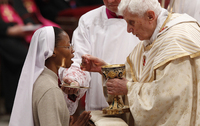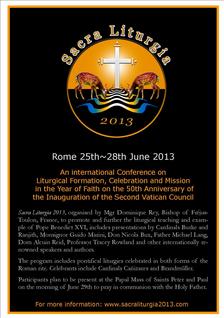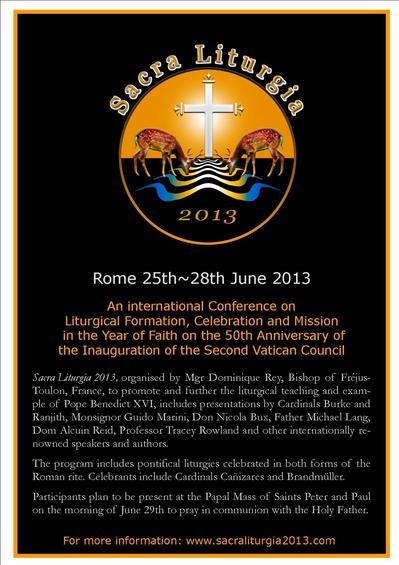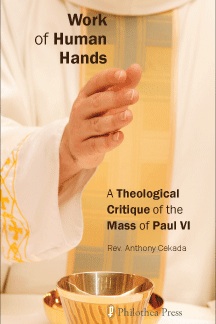There are few opportunities for good and solid learning on the sacred Liturgy these days. Many of the conferences that pass for the advancement of Catholic thinking on the Liturgy are ideological. BUT, the forthcoming conference in Rome, Sacra Liturgia 2013, provides a great venue, a a clear context, a group of well-informed speakers dealing with the Catholic worship of the One Triune God.
Recently, a member of the Catholic World Report interviews one of the organizers, Dom Alcuin Reid, of Sacra Liturgia 2013 which will take place 25-28 June.
Dom Alcuin answers a question on Pope Benedict’s contribution to liturgical life of the Church:
Primarily in fostering the “new liturgical movement,” I think. Firstly, by his teaching, above all in Sacramentum Caritatis, which is a profound tutorial on the liturgical and ecclesial celebration of the Blessed Eucharist. Also by his acts, most certainly through Summorum Pontificum, where he authoritatively asserted that that the rites that were once “sacred and great…cannot be all of a sudden entirely forbidden or considered harmful.” Finally, by his example: papal liturgies have shown us the meaning of ars celebrandi–the manner of celebrating the sacred mysteries with a true noble simplicity. And always, at the head of these liturgies has stood a man who has looked together with us toward the cross he had placed in the center of the altar. The liturgy is about Him, not me, he has taught us.
Clergy, religious and laity are welcome!
Dom Alcuin Reid is a monk of the Monastère Saint-Benoît in the Diocese of Fréjus-Toulon, France.
Reid’s major work, The Organic Development of the Liturgy (Ignatius Press, 2005); he updated The Ceremonies of the Roman Rite Described (Burns & Oates, 2009) and he is the editor of From Eucharistic Adoration to Evangelization (Burns & Oates, 2012).



